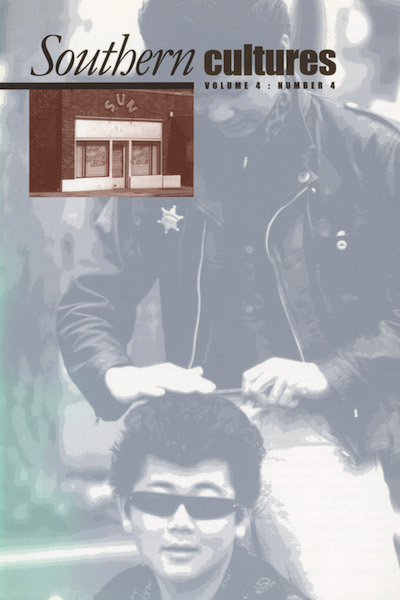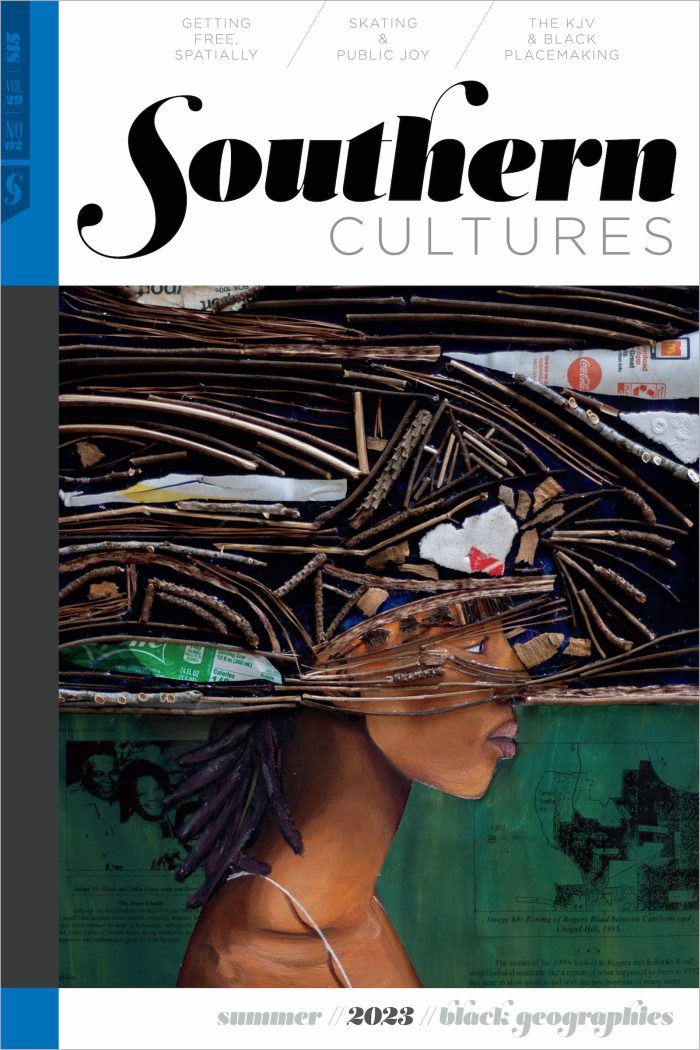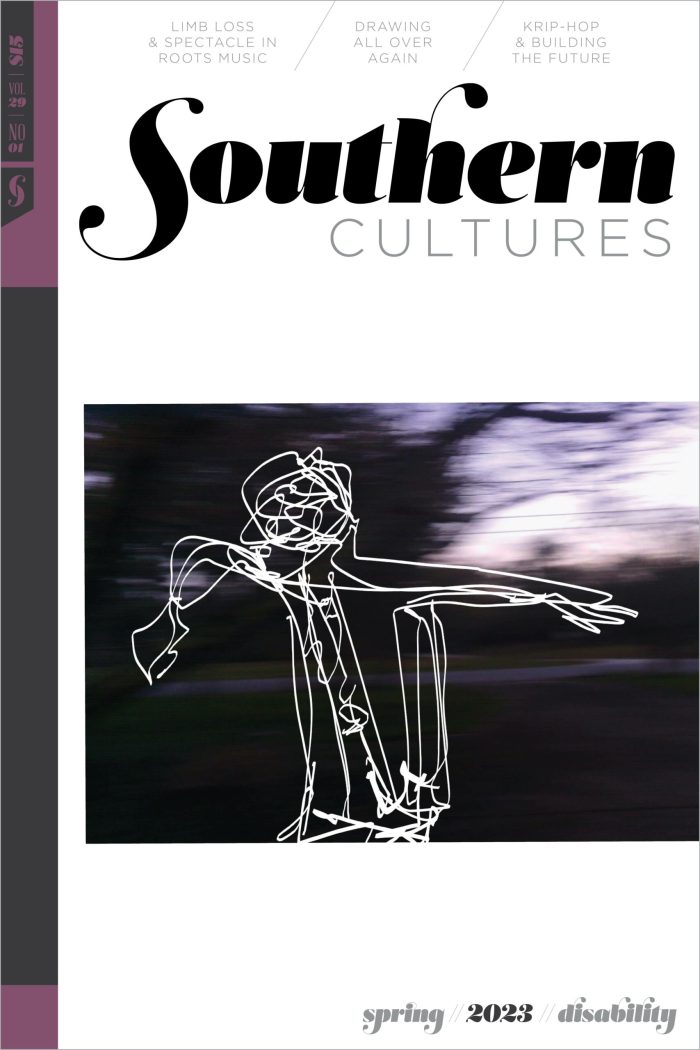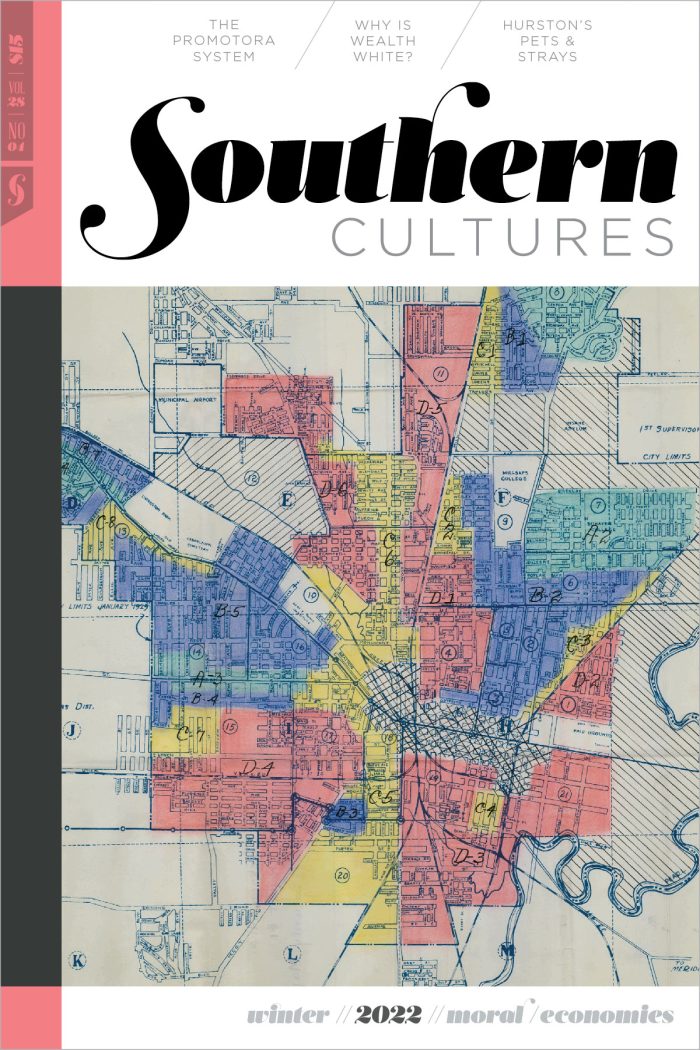BUY ACCESS
by Harry L. Watson
BUY ACCESS
by Michael O'Brien
BUY ACCESS
by C. Vann Woodward
BUY ACCESS
Teaching Southern Culture in Japan
by Anne Goodwyn Jones
BUY ACCESS
A View from Germany
by Peter Nicolaisen
BUY ACCESS
Life in the Netherlands
by Edward L. Ayers
BUY ACCESS
The Making of Southern History in Britain
by Brian Ward
BUY ACCESS
by Steven Stowe
BUY ACCESS
by Richard H. King
Oxford University Press, 1997 For much of American history, Americans and Europeans (particularly Western Europeans) have been locked in an elaborate love-hate relationship. Though Richard Pells surveys the whole of American history, his focus in Not Like Us, as the subtitle indicates, is the post-1945 interaction of European and American culture. It has been, of course, in »
BUY ACCESS
by Susan H. Irons
Louisiana State University Press, 1996 Benjamin H. Trask has recovered a lively voice from the past, a voice heavy with the accents of time and place. Trask’s recent republication of the neglected 1863 Two Months in the Confederate States by “an English Merchant” brings to light an interesting, informative, and enjoyably readable account of a British citizen’s »
BUY ACCESS
by Anne M. Valk
University of Georgia Press, 1995 LeeAnn Whites contributes to the multitude of texts devoted to the Civil War with her provocative analysis of how the war precipitated a crisis in white southerners’ gender conventions, pushing elite men and women to make order in their changing world. Gender conventions, as Whites explains, constitute “historically rooted ways »
BUY ACCESS
by Sarah Wilkerson-Freeman
University of Georgia Press, 1995 It is now more than forty years since the lines of Arkansas National Guardsmen, under orders from Governor Orval Faubus, blocked nine black students from entering and attending classes at Little Rock’s Central High School. When the 101st Airborne, sent by President Eisenhower, mounted their bayonets and escorted the black »
BUY ACCESS
by Henry McKiven
Verso, 1996; University of South Carolina Press, 1996 One of the most enduring images of the post-Civil War South is the African American prisoner, bound in chains, working on the roads or at some other equally oppressive task. Through the print media, bad Hollywood films, and, more recently, the actions of the state of Alabama, »
BUY ACCESS
by Marjorie Spruill Wheeler
University of Georgia Press, 1996 For far too long historians accepted without serious question the idea that women’s political activism diminished and all but disappeared following the ratification of the Nineteenth Amendment in 1920. Since the League of Women Voters enlisted only a small minority of suffragists, and American women did not vote as a »
BUY ACCESS
by Susan V. Donaldson
University of Tennessee Press, 1995 Ellen Glasgow has long been known for attacking the South’s “evasive idealism” and calling for “blood and irony” in southern literature; but making sense of Glasgow and her work has often resisted the best efforts of students of southern literature. As Dorothy M. Scura notes in her introduction to this »
BUY ACCESS
by John Leland
University Press of Virginia, 1996 Lee Greene’s Blacks in Eden rebuts Thomas Jefferson’s remark about the poetry of Phyllis Wheatley, the eighteenth-century black poet: “The compositions published under her name are below the dignity of criticism.” Greene, who has written a biography of Anne Spencer and numerous articles on African American writers, argues that blacks consciously subverted »
BUY ACCESS
by Clyde Edgerton
University of Arkansas Press, 1997 Although the book under review does not speak of music notation or scales, I’d like for you to consider a C major scale on the piano: C, D, E, F, G, A, B, C- all white notes. Now start over. Skip the D and E, but add the black note »
BUY ACCESS
by Beverly B. Patterson
University of Illinois Press, 1996 In 1898 an unsigned article in the University of Texas Magazine closed with a romantic description of the cowboy: “no man in all the world can ever take the vacant place of ‘the last cavalier.’” Nolan Porterfield believes this article, “Minstrelsy of the Mexican Border,” to be John Lomax’s first published commentary »
BUY ACCESS
by Jill Snider
University of Alabama Press, 1997 In his preface, Charles W. Dryden, a pilot with the famed 99th Fighter Squadron of World War II, characterizes his memoir as a historical drama. It is not, however, the enemy in the air that occupies center stage in A-Train. Dryden’s story line, he asserts, is the Tuskegee Experiment and his villain »
BUY ACCESS
by Leo P. Ribuffo
Scribner’s, 1997; University of Georgia Press, 1996 These volumes are the first full-fledged biographies of Jimmy Carter to appear since 1980, when political scientist Betty Glad published what may be the best biography ever written about a sitting president. When Glad’s Jimmy Carter: In Search of the Great White House appeared, her subject was widely derided as »
BUY ACCESS
by Gavin James Campbell
Rounder, 1998 This two-volume CD set might be properly termed as aural ethnography. Folklorists Alan Jabbour and Carl Fleischhauer use the history, experiences, tales, and music of a white family from Pocahontas County, West Virginia, to demonstrate how intimately bound a family’s experiences are to the shape and style of its repertoire. The CDs, enhanced »
BUY ACCESS
by Gavin James Campbell
Rounder, 1998 Between 1978 and 1979 the Blue Ridge Parkway Folklife Project systematically documented the expressive culture of an eight-county area straddling the Virginia-North Carolina border. From this study comes the material for two CDs containing visions, singing, prophesies, prayers, and sermons. Sampling both white and black congregations, and roaming from churches to the baptismal »
BUY ACCESS
by Gavin James Campbell
Rounder, 1998 From 1787, when a traveler visiting North Carolina made the first known reference to a banjo in the Tar Heel state, to the present day, the banjo has been a persistent part of that state’s musical history. The North Carolina Banjo Collection, a two CD set with an accompanying booklet, seeks to provide an overview »
BUY ACCESS
by Gavin James Campbell
Smithsonian Folkways, 1996 Fans of Bernice Johnson Reagon’s award-winning radio series “Wade in the Water” will be delighted to see this four-CD set. Taking a historical approach, each CD spotlights one tradition and traces its development and influence. Volume one contains spirituals arranged for the concert stage; volume two examines the nineteenth-century roots of congregational »





